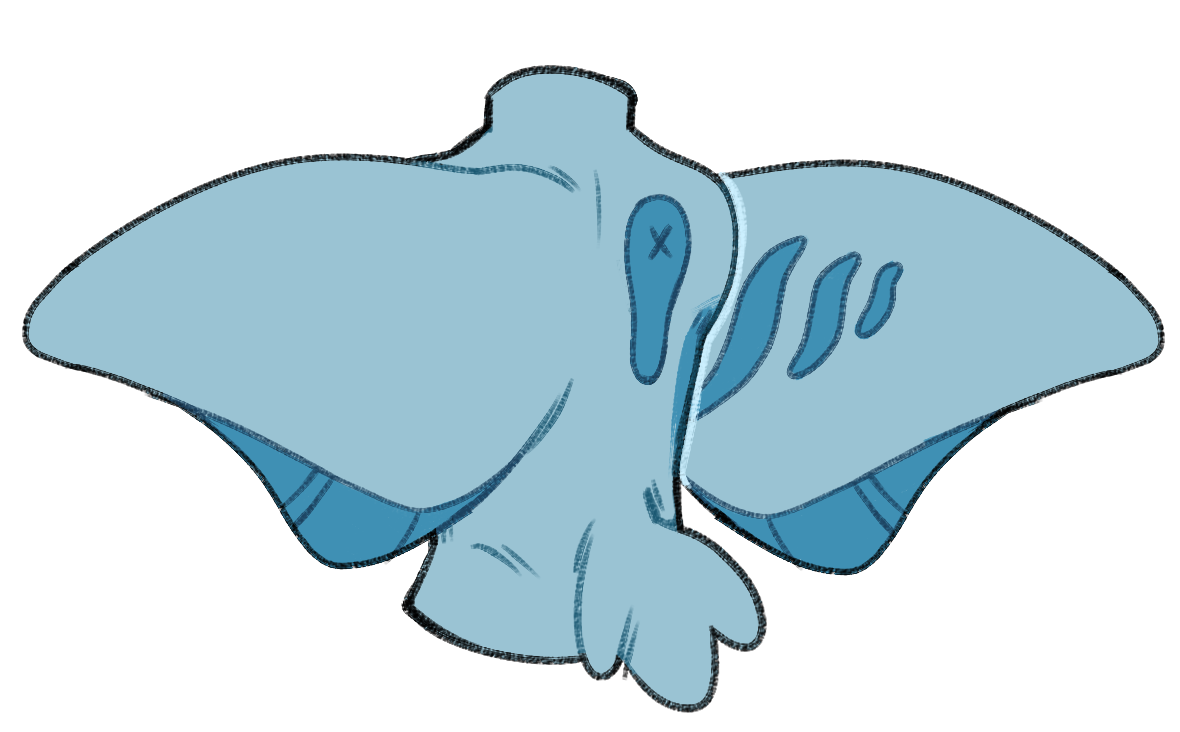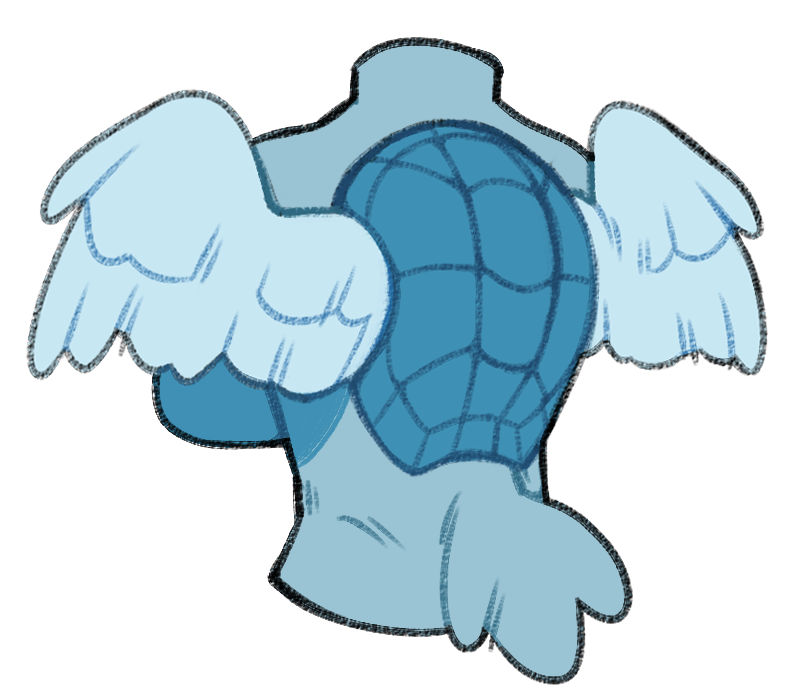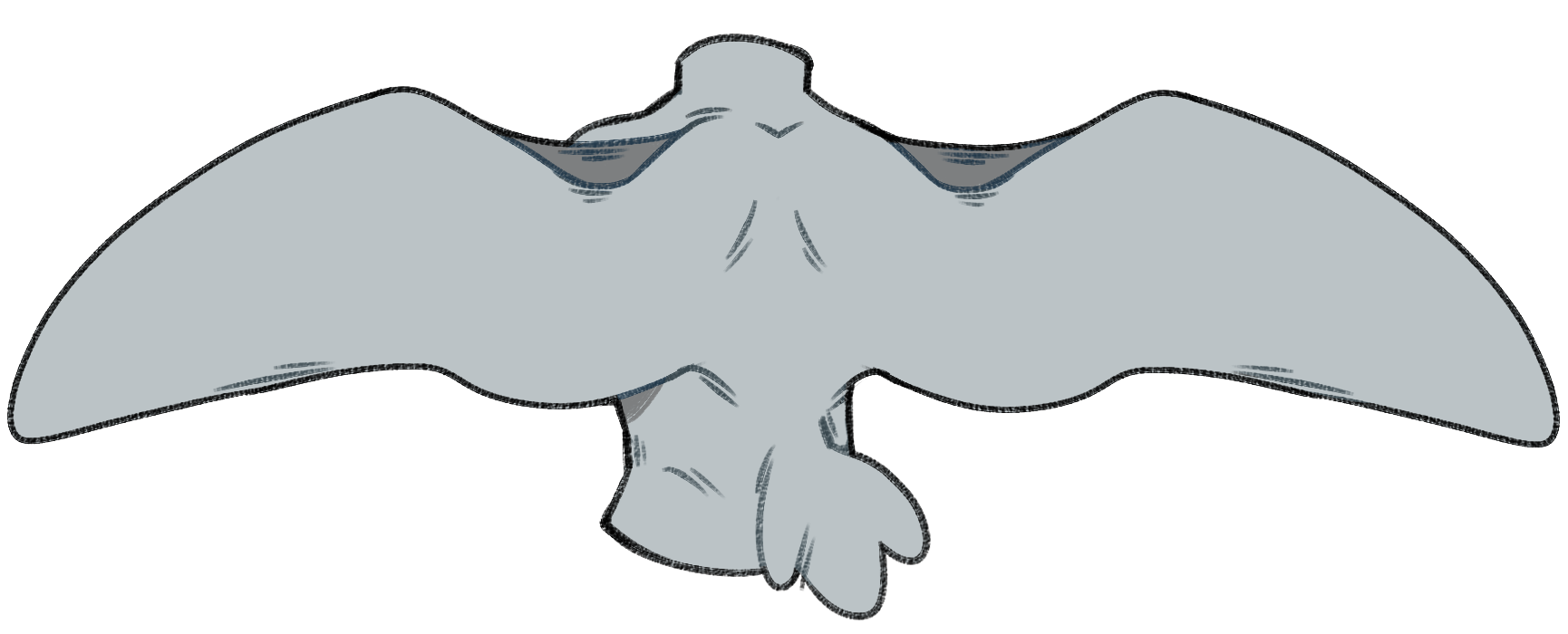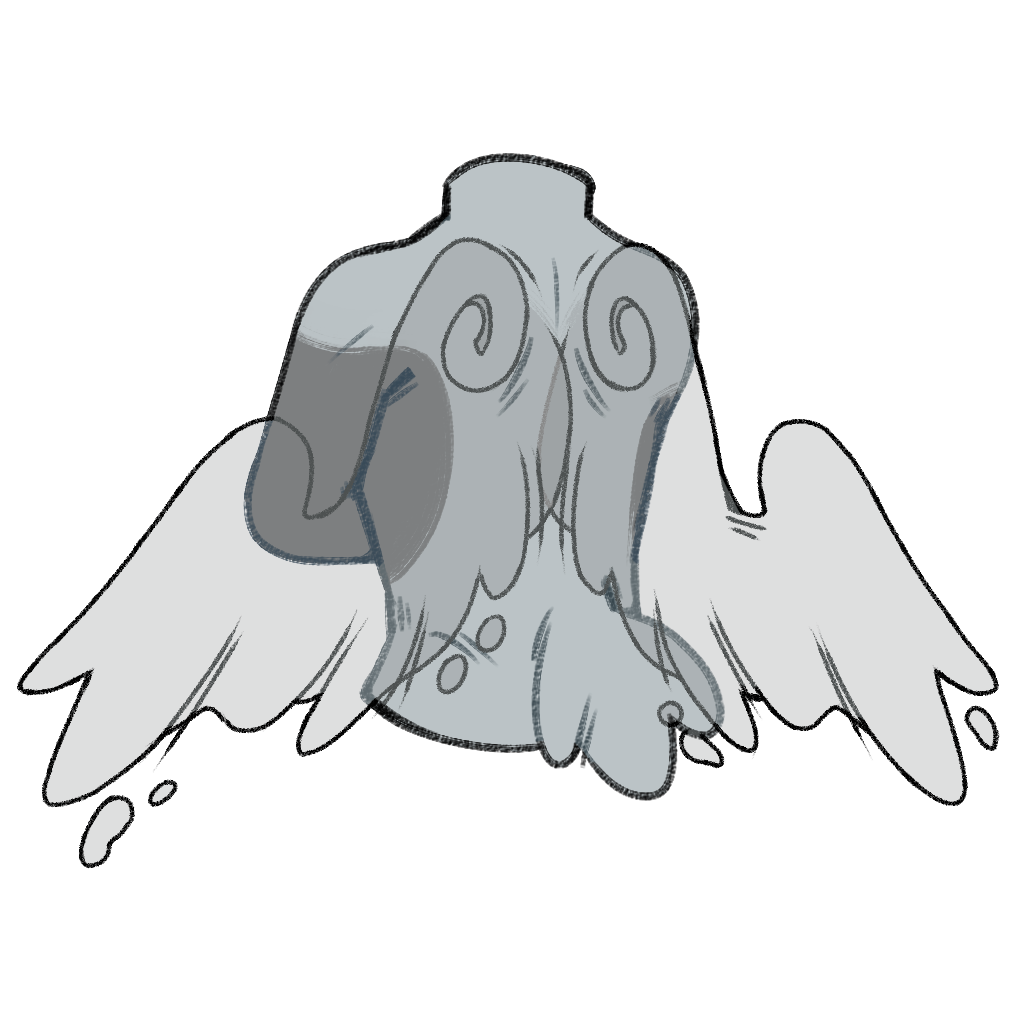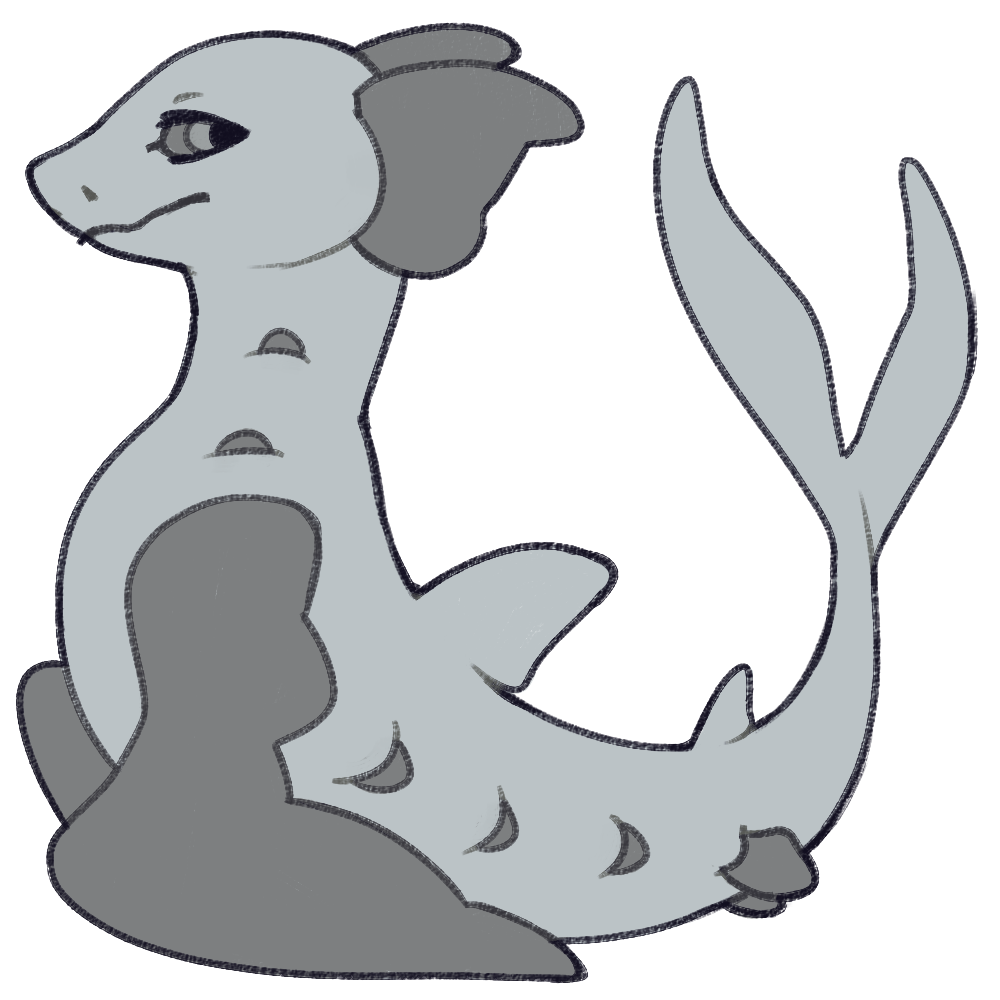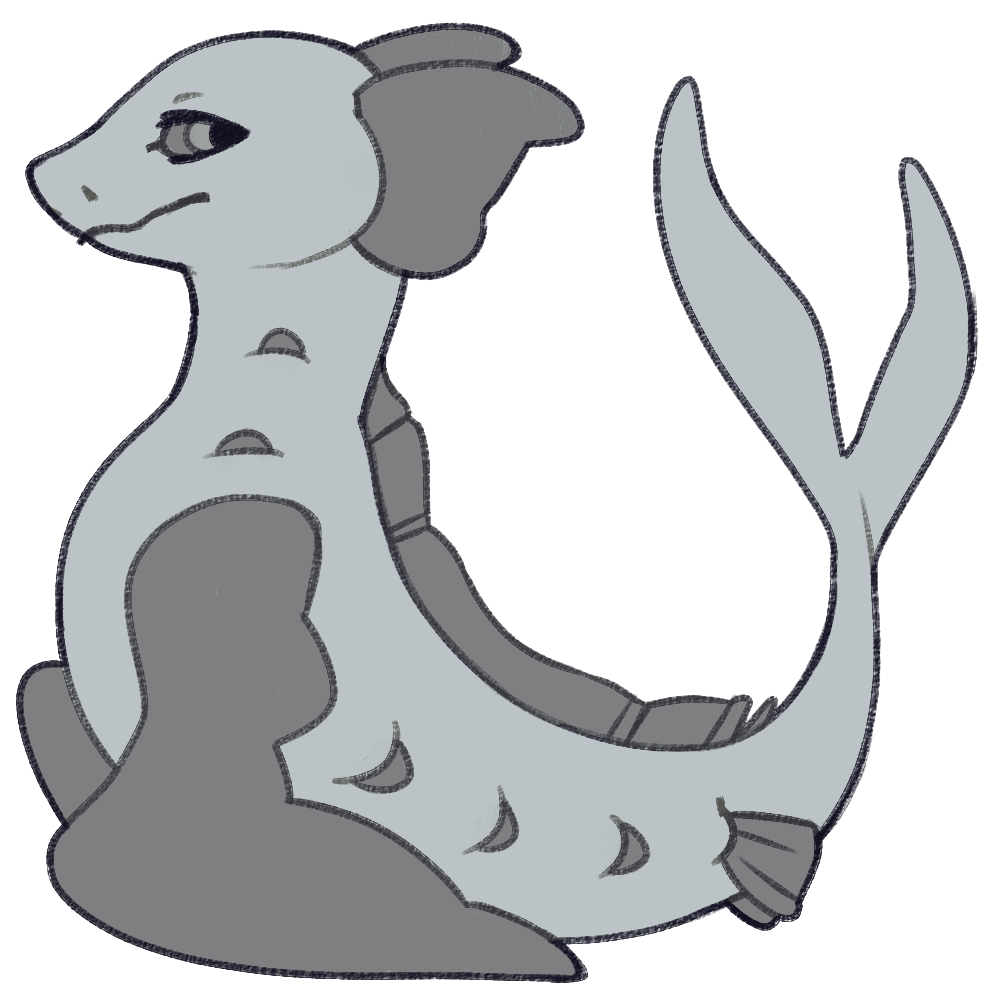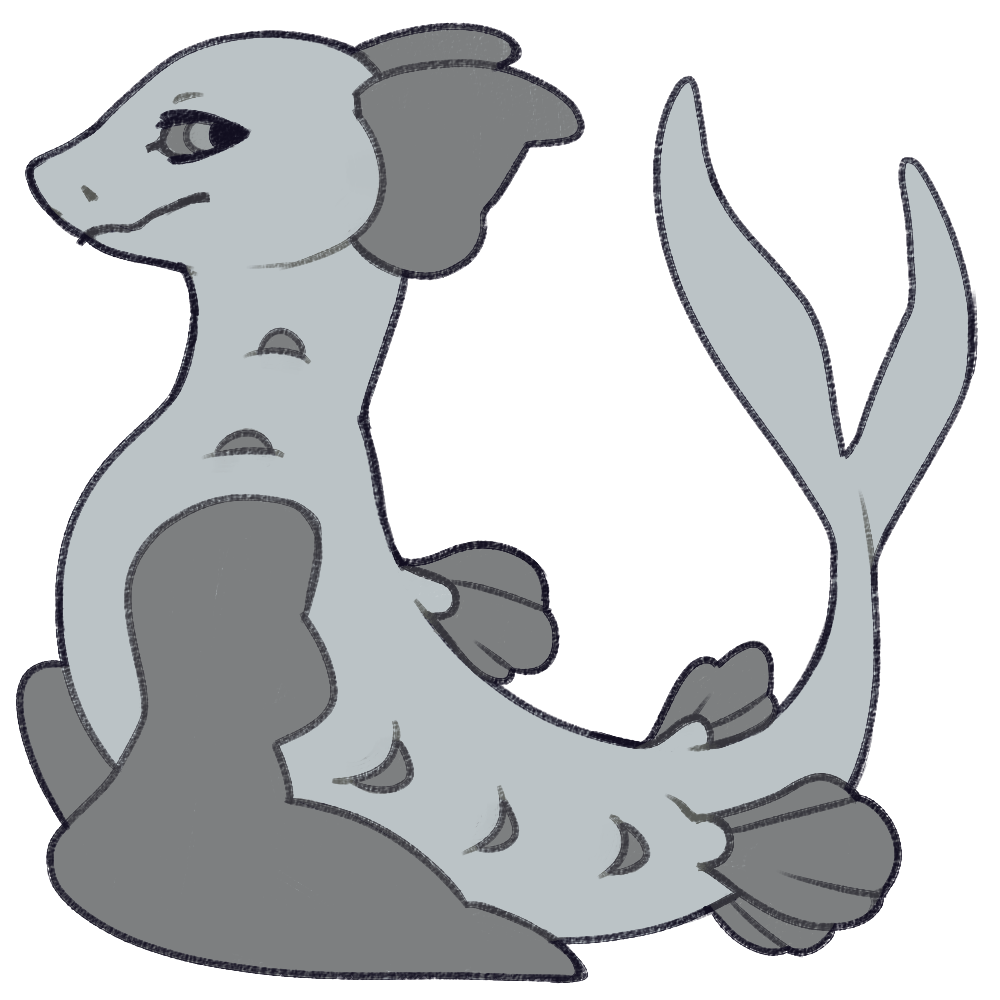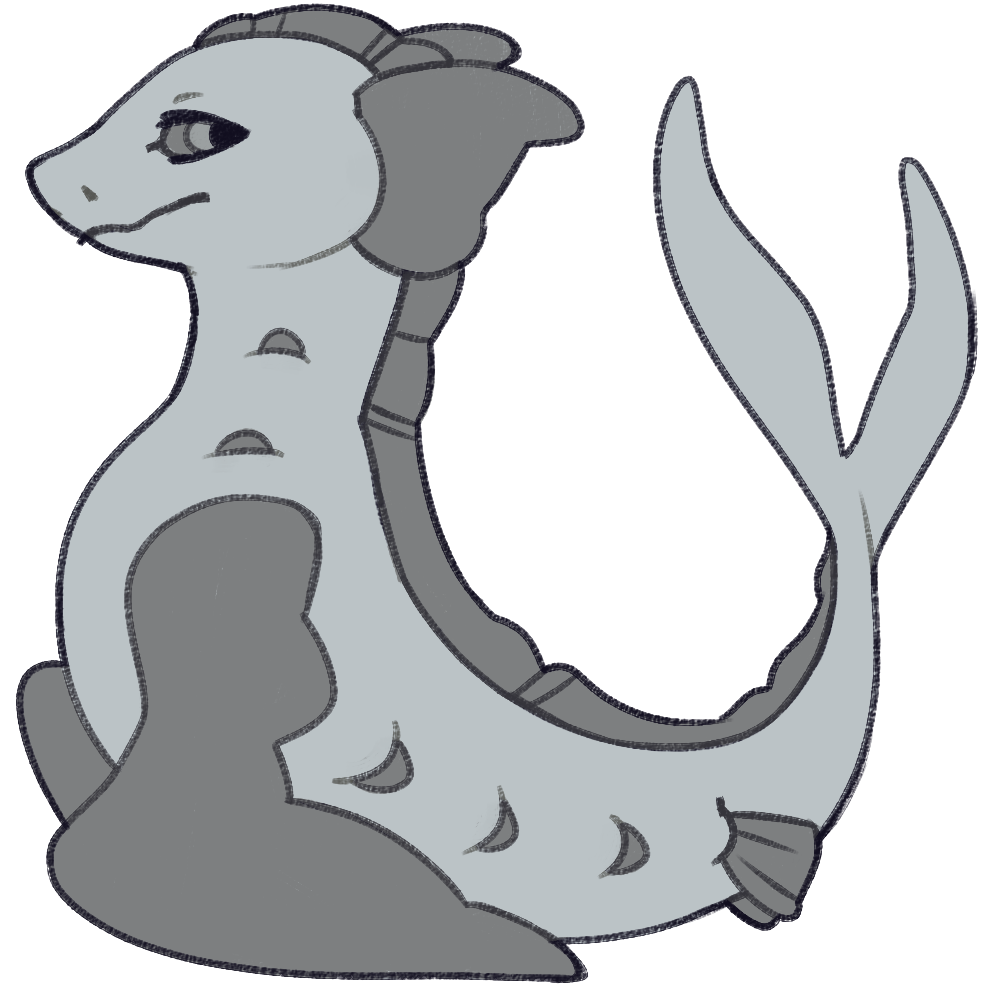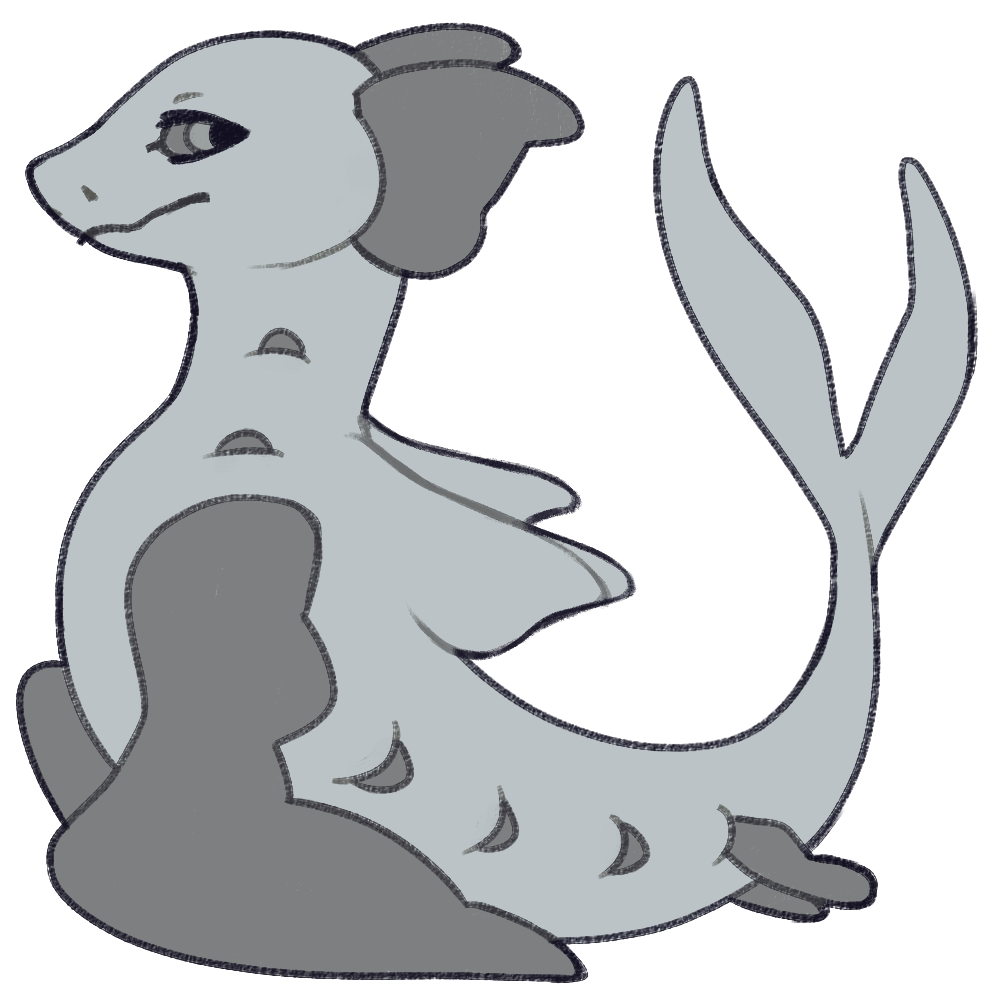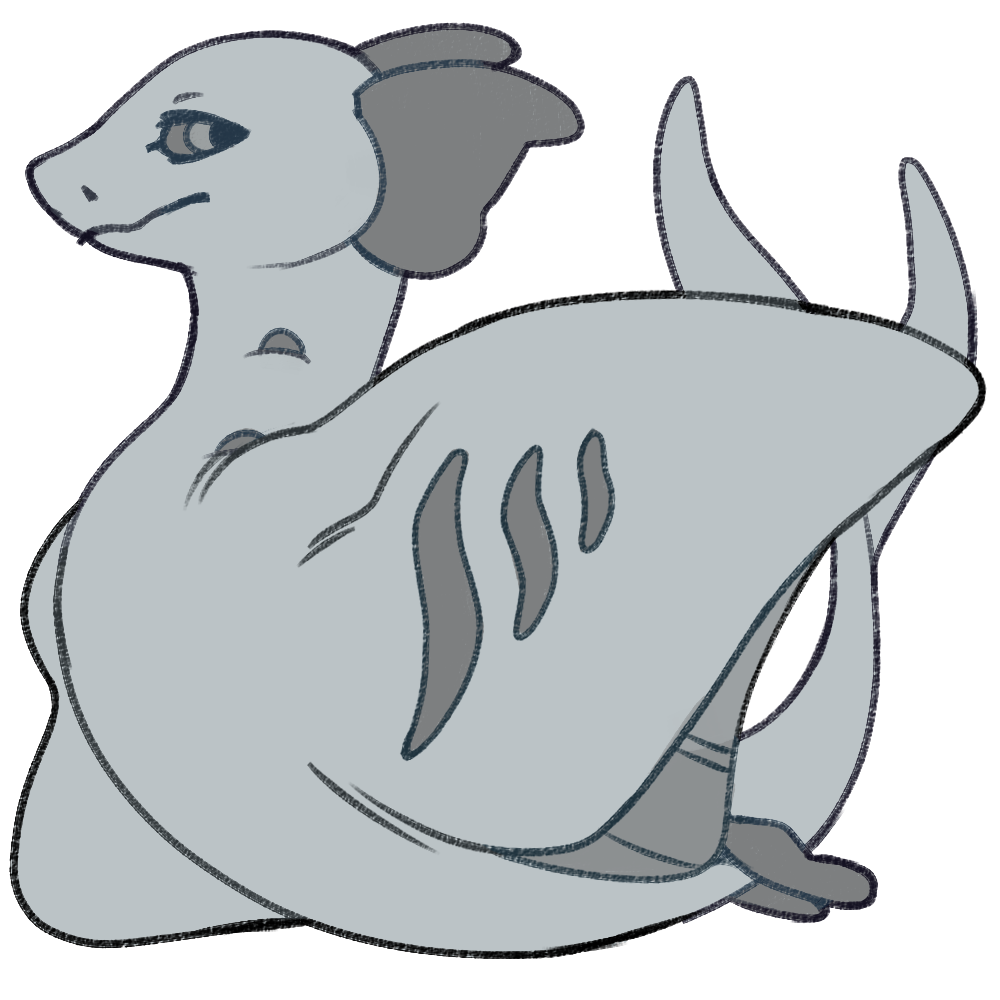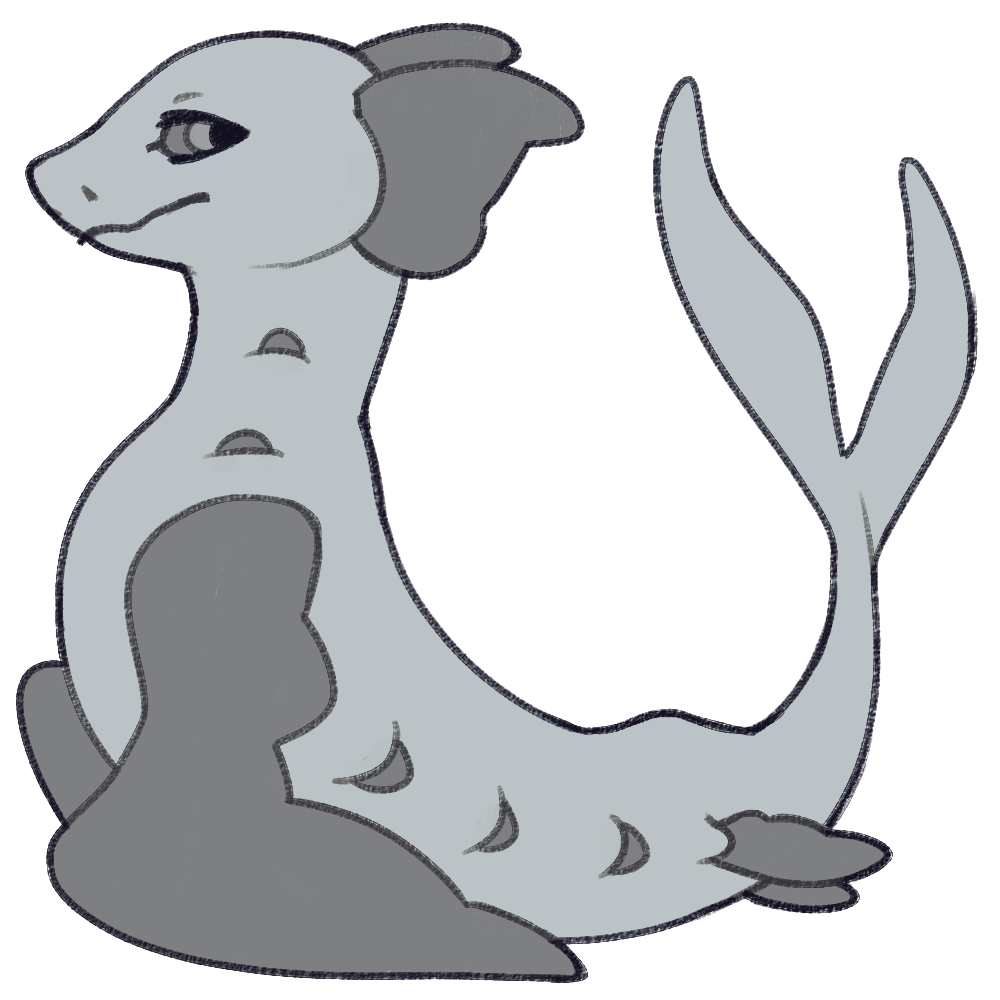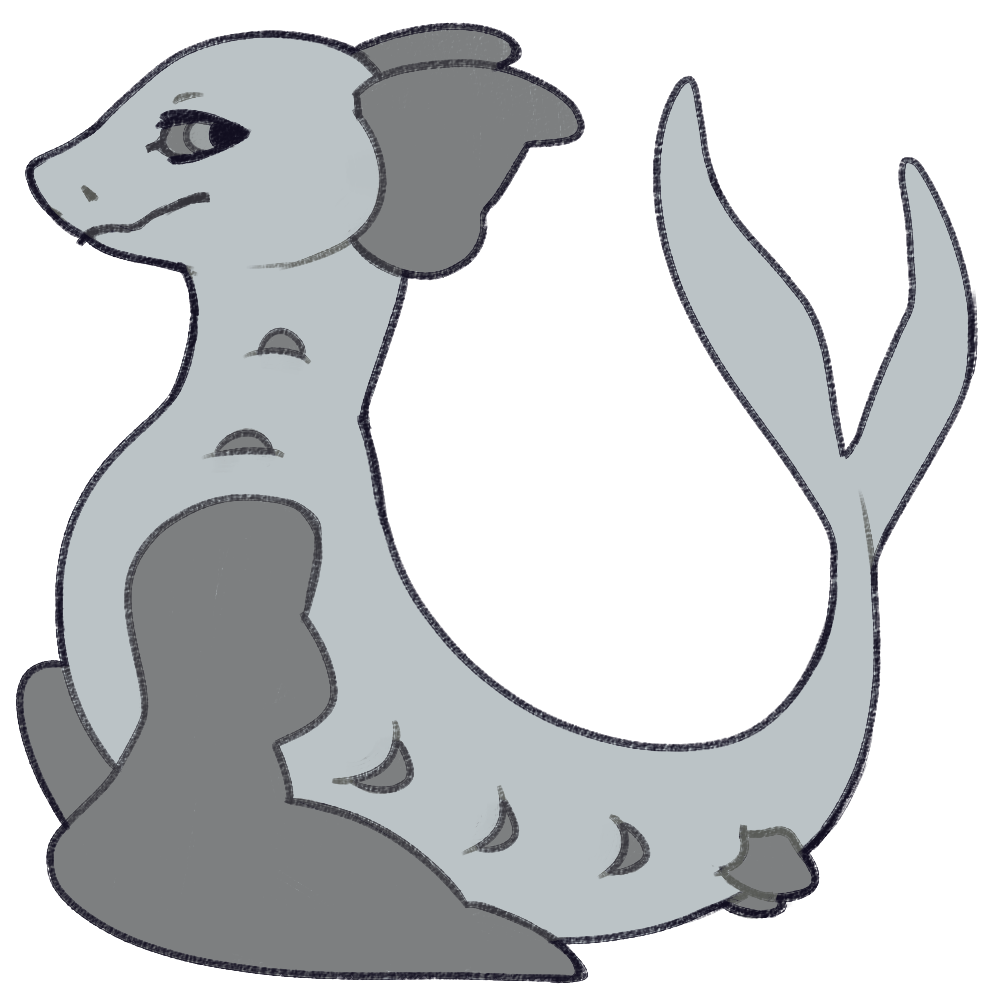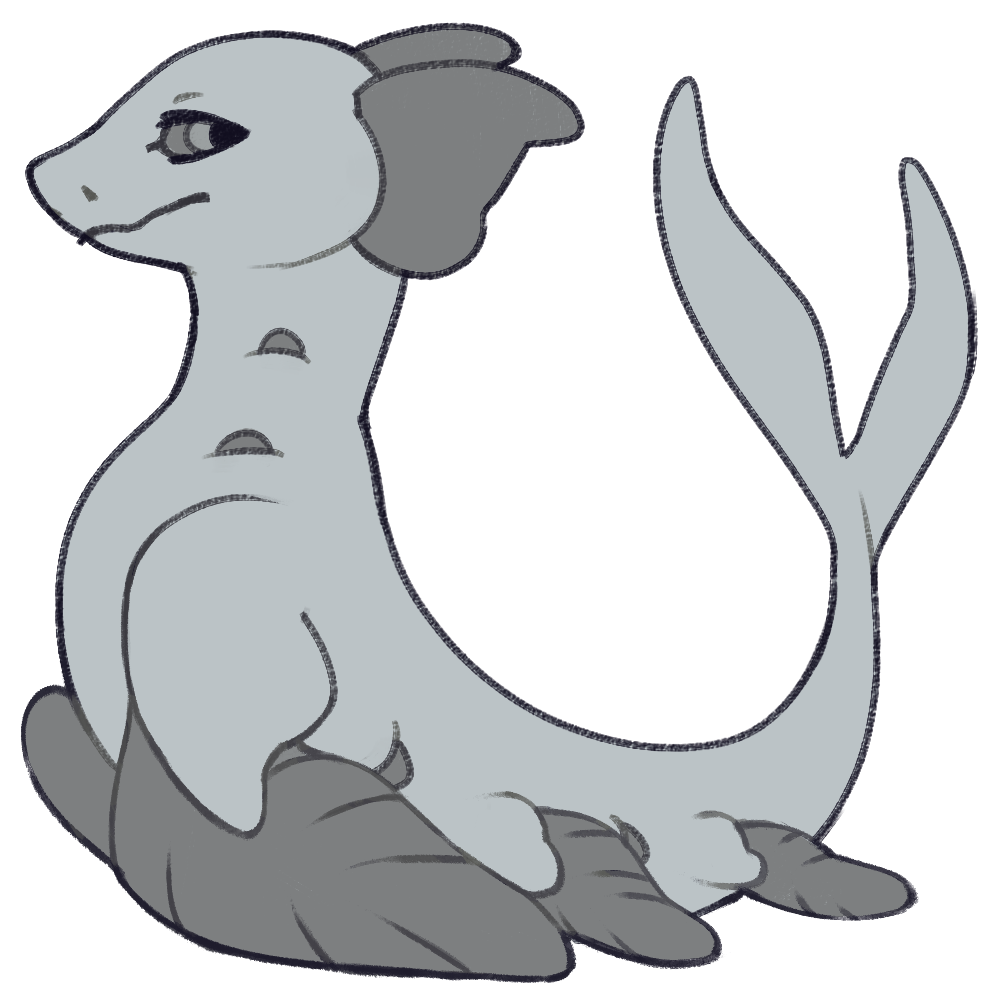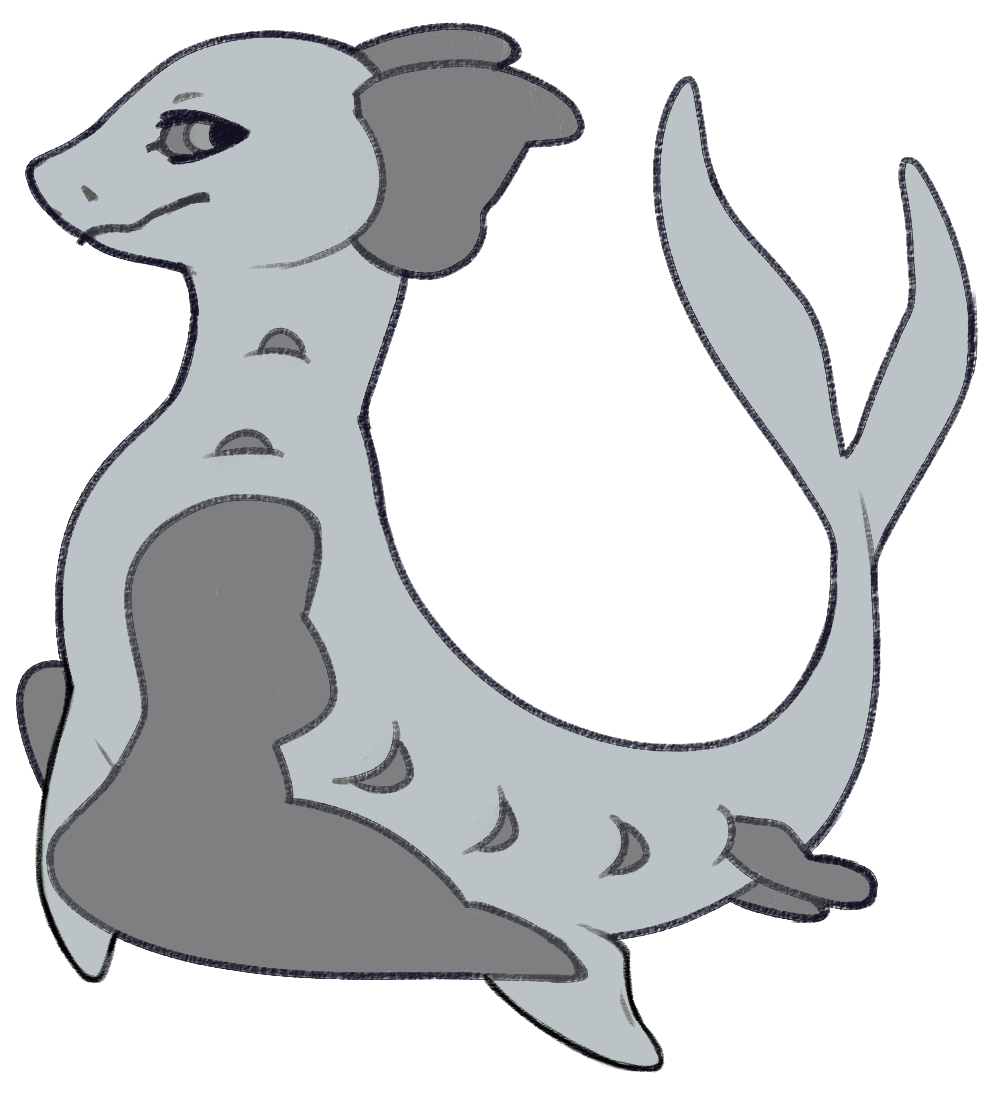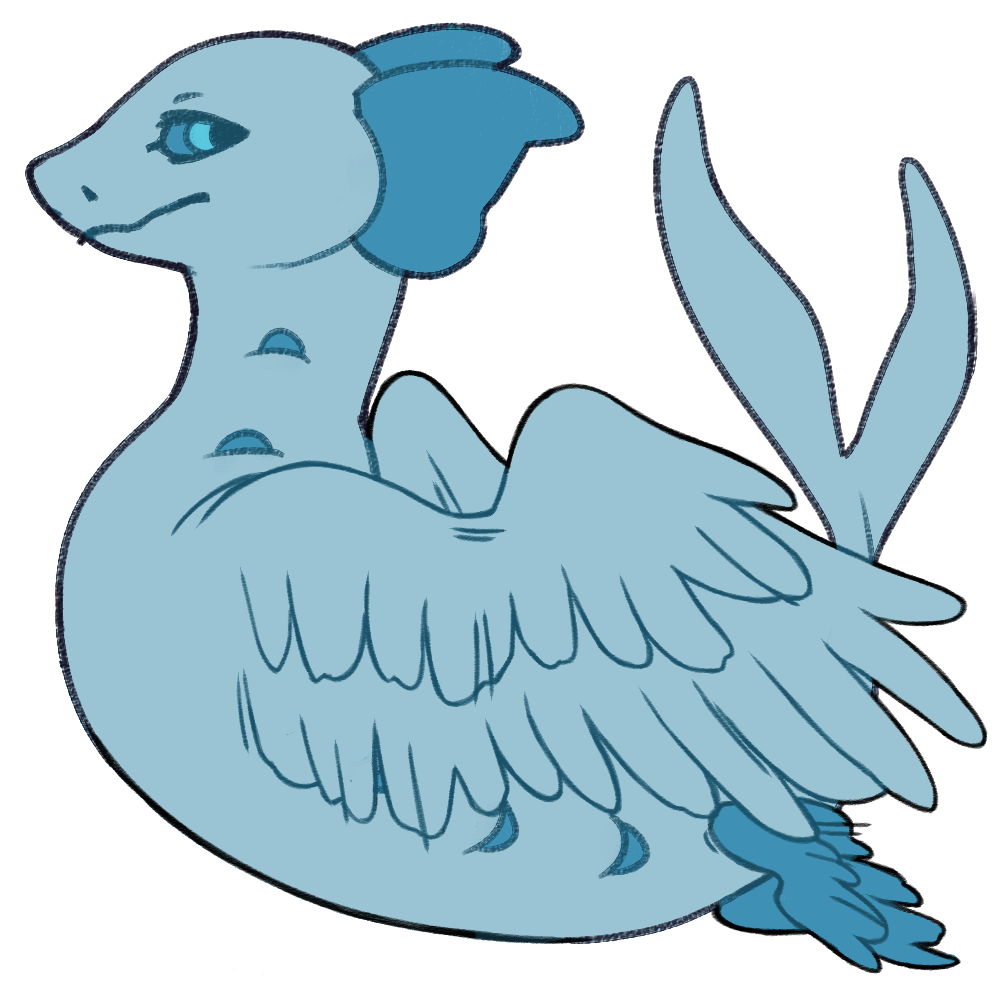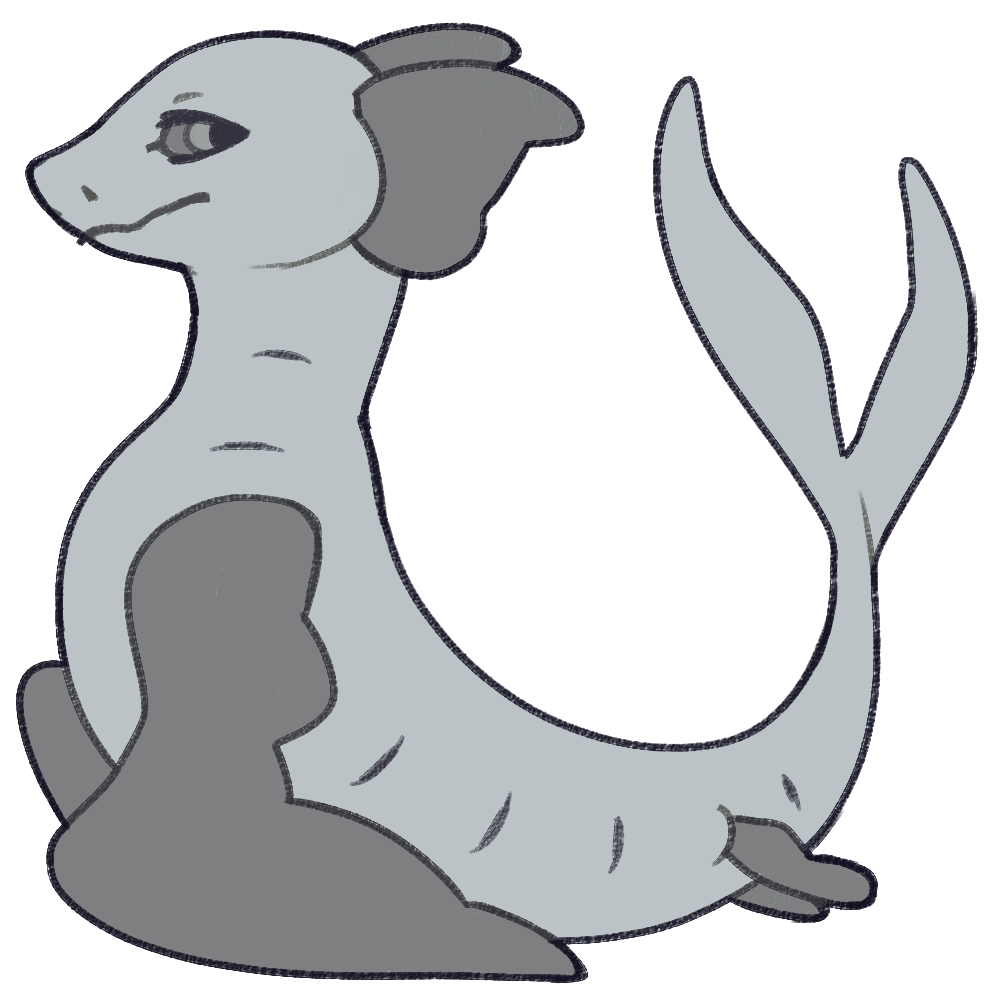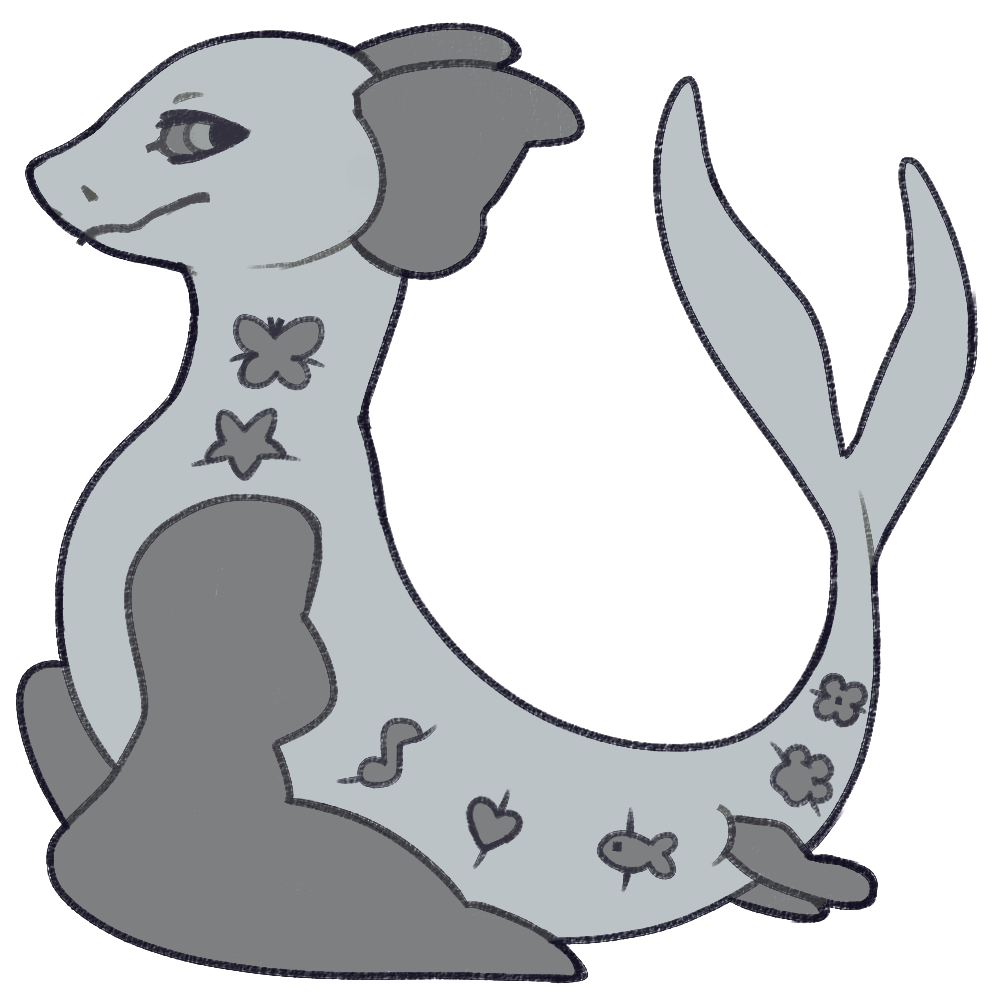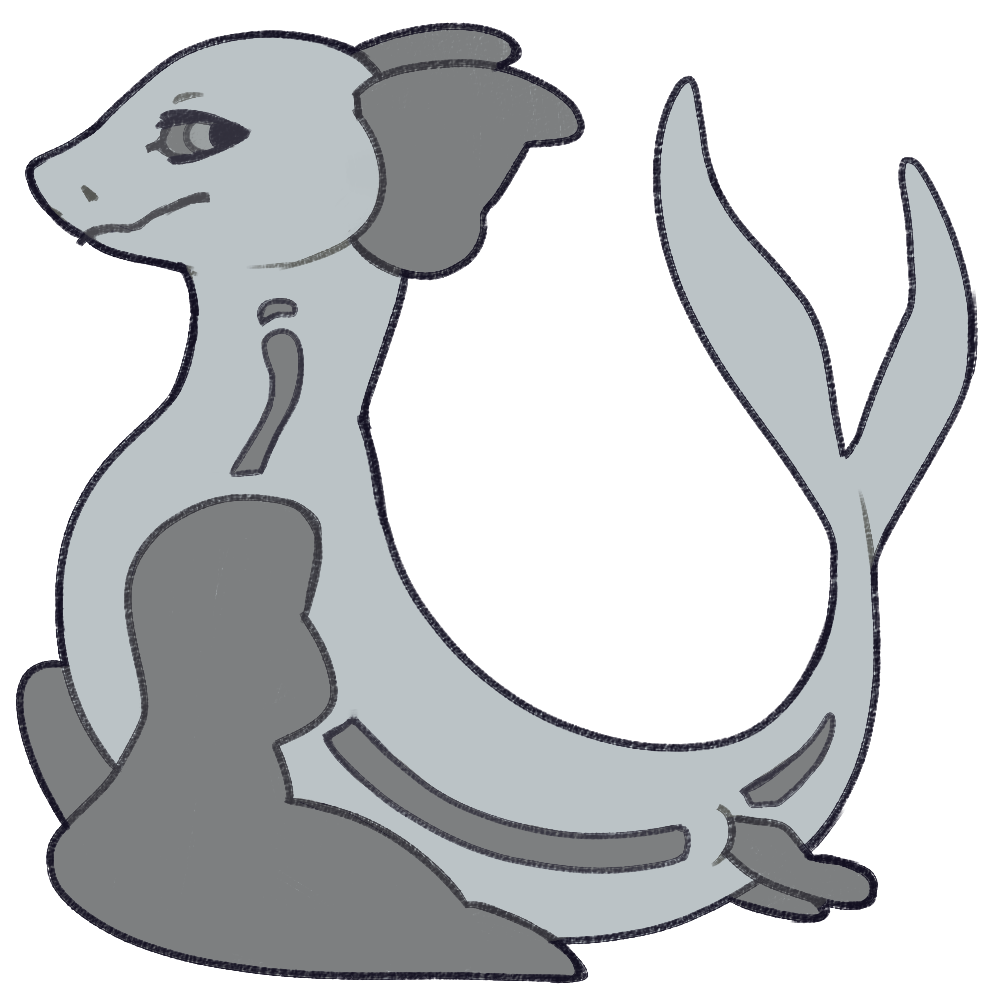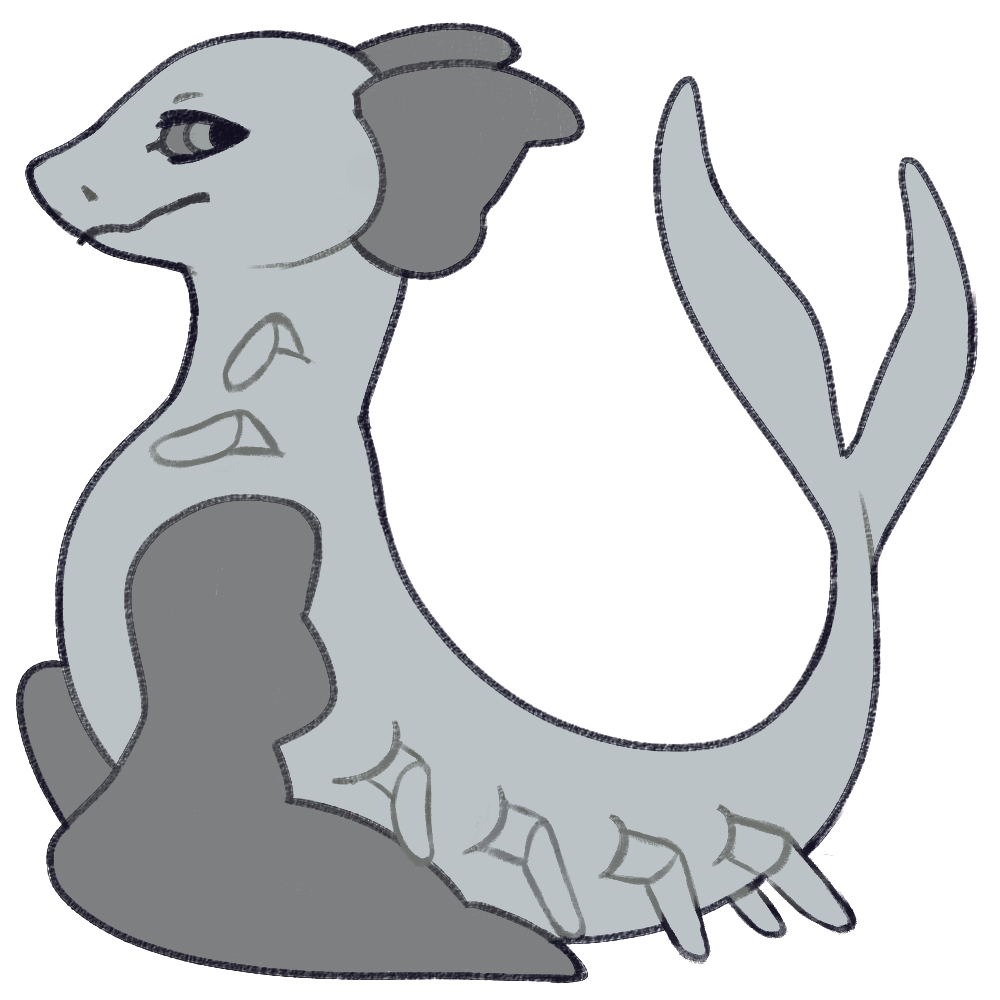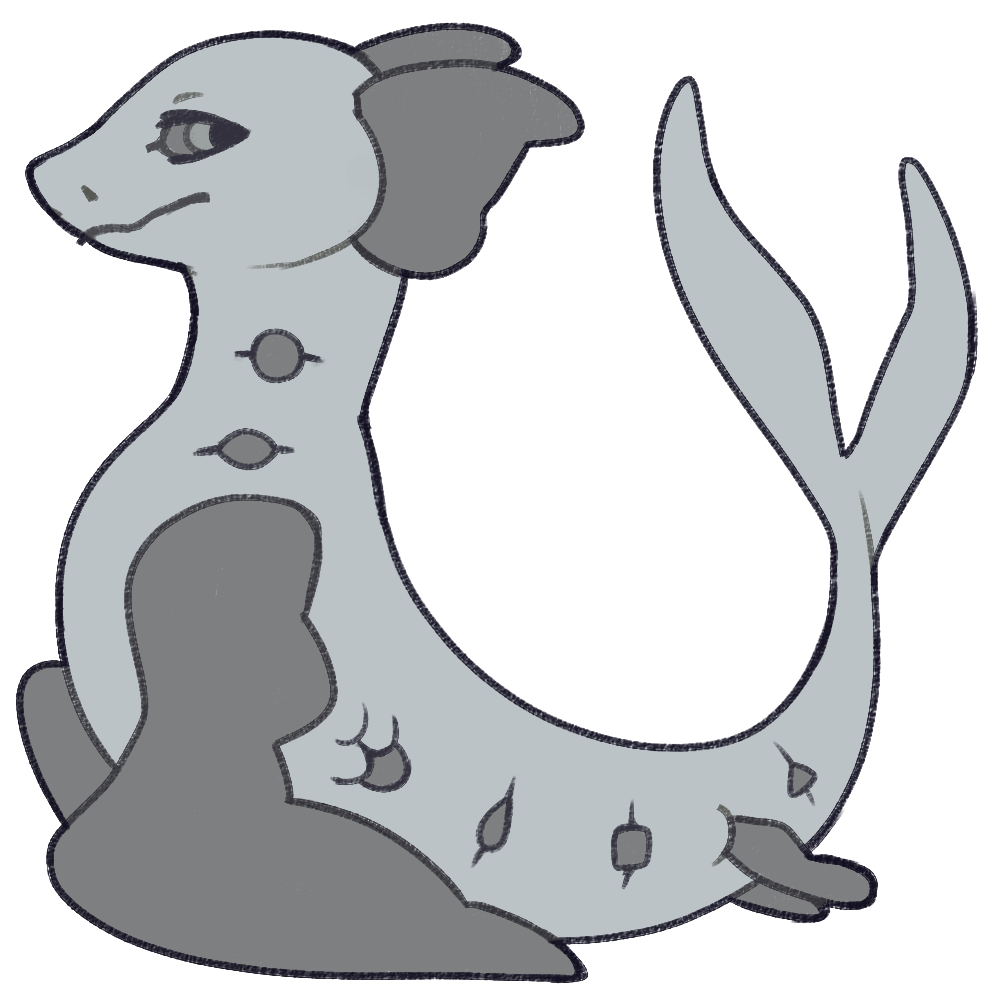Traits
Manta Wings (Summer)
These wings resemble the fins of various types of rays, such as manta rays or stingrays. These wings always have some sort of goo present along the underside and these patches of goo usually resemble vents or gills. Additionally, some manta wings will display a thinner membrane along the lower edge of the fin, but this detail isn't always present. These wings aren't capable of any type of flight, but they do help land mhoats swim better underwater.
Alternate Types Show
-
Manta Fins (Mutation)
These fins resemble the fins of various types of rays, such as manta rays or stingrays, and replace the goo fins that are standard in aquatics. This means they are unable to transform these fins in the same manner as their fellow aquatics and land mhoat cousins. These fins always have some sort of goo present along the underside, usually in the form of vents that can tend towards functional or decorative. Additionally, some manta fins will display a thinner membrane along the lower edge of the fin, but this detail isn't always present.
Turtle Shell Wings (Summer)
This trait gives a mhoat a tough shell on the back that can sprout and withdraw a pair of feathered wings; these wings can be either soft and feathered wings formed from the mhoat's plating or made of a mhoat's own goo. When it comes to flight, these wings only allow a mhoat to glide short distances when taking off from higher elevations rather than full flight.
Alternate Types Show
-
Shelled (Winter)
Species: Gellys
Gellys with this trait form a hard shell that spans the entirety of their back from base of the neck to the tail.
-
Turtle Shell (Mutation)
This trait grants aquatic mhoats a turtle-like shell that forms over the top of their plating, it can resemble a variety of turtles or tortoise shells.
Ptero Wings (Mutation)
This trait gives a mhoat large sturdy wings that are capable of flight. These wings mimic those found on pterosaurs and can vary to appear like any type of pterosaur wing.
Flight (Timeless Ability)
Mhoats with this trait grow a thin veily pair of wings. Mhoats with less magic tend to only be able to glide with these wings. While those with more magic can in fact fly with them.
It's recorded that these wings aren't true wings, mhoats that are scared of heights have been recorded to not be able to fly at all. If pushed they'll always fall no matter how hard they try untill near they are near the ground, in which they abruptly stop, once they notice they've stopped, then they'll fall to the ground. Otherwise, they seems to dissipate when the mhoat falls asleep.
Alternate Types Show
-
Flight (Timeless Ability)
Species: Vabbits
Vabbits with this trait grow a thin veily pair of wings. Vabbits with less magic tend to only be able to glide with these wings. While those with more magic can in fact fly with them.
It's recorded that these wings aren't true wings, vabbits that are scared of heights have been recorded to not be able to fly at all. If pushed they'll always fall no matter how hard they try untill near they are near the ground, in which they abruptly stop, once they notice they've stopped, then they'll fall to the ground. Otherwise, they seems to dissipate when the vabbit falls asleep.
Shark Fin (Standard)
This triangular fin-type can show up as either a single fin or a pair of fins along the back of the aquatic mhoat.
Fish Fin (Standard)
This fin type tends to begin around the shoulders and end around the back fins, they are usually the same color as the mhoat's goo but can be muted colors from the main body. These back fins mimic various fish fins and allow for a lot of variation.
Lobe Fins (Standard)
This fin type has a solid base that leads into a light fin that tends to either be the color of the mhoat's goo or muted colors from the mhoat's body.
Eel Fin (Standard)
This fin type starts at the top of the mhoat's head and runs down the back of the body.; this fin can either stop near the back fins or flow into the tail. These fins are usually the same color as the mhoat's goo but can be muted colors from the main body.
Manta Fins (Mutation)
These fins resemble the fins of various types of rays, such as manta rays or stingrays, and replace the goo fins that are standard in aquatics. This means they are unable to transform these fins in the same manner as their fellow aquatics and land mhoat cousins. These fins always have some sort of goo present along the underside, usually in the form of vents that can tend towards functional or decorative. Additionally, some manta fins will display a thinner membrane along the lower edge of the fin, but this detail isn't always present.
Whale Fin (Standard)
A short sturdy fin that is located low on the back of an aquatic mhoat.
No Fins (Standard)
Mhoats with this trait don't form any type of fin on their back.
Coelacanth Fins (Mutation)
This fin type adds an extra set of lower fins along the aquatics body and modifies the front fins by having the shell overlap the structure further than is standard. Because of this extra shell, the front fins are more limited in how far the aquatic can transform them.
Bottom Fin (Mutation)
Aquatics with this trait have a fin or a pair of fins that form on the bottom of their body, these fins impair their ability to surface and spend time on land unless they have a kelpie form.
Sylph Fins (Summer)
Aquatics with this trait form a variety of wings in place of their fins ranging from feathered, webbed, to even insect-like wings. This change to their anatomy means these aquatics are able to take to the sky and tend to spend much of their time on land as a result.
No Vents (Mutation)
Aquatics with this trait lack visible vents on their body, but may still show an impression along the body plates where these vents would have otherwise formed.
This trait will be added by default to Aquatic Mhoats with the Shell-less trait.
Shaped Vents (Mutation)
Shaped vents are those that form in more complex shapes than usually appear on an aquatic mhoat. These vents often resemble actual things such as butterflies, pawprints, music notes, etc.
Line Vents (Mutation)
This type of vent either forms as a long line or interrupted line that extends down the length of the body, These vents may curve or wrap around the body rather than follow a set path.
Lobster Legs (Mutation)
This trait allows for a variety of lobster, crab, or crustacean-like limbs to replace the vents. These limbs can replace the vents and formed from the aquatic's shell or they may be formed from goo.
Basic Vents (Standard)
Any round, almond, scale, or other simple shaped vents that form in between the large plates on an aquatic's body. These usually form a line along the sides of their body, but placement can vary depending upon the layout of their body plates.
